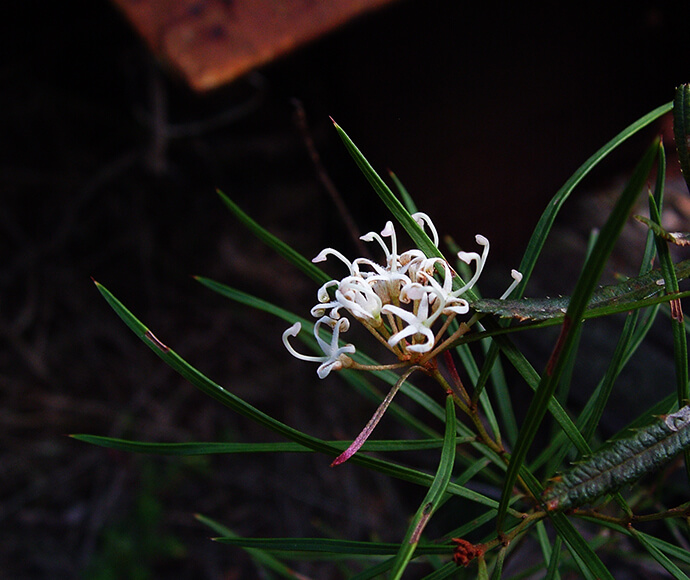
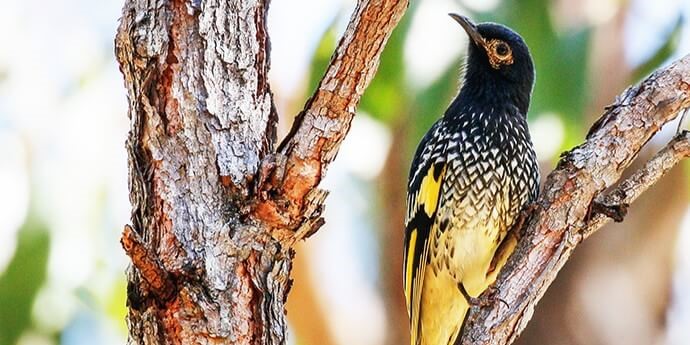
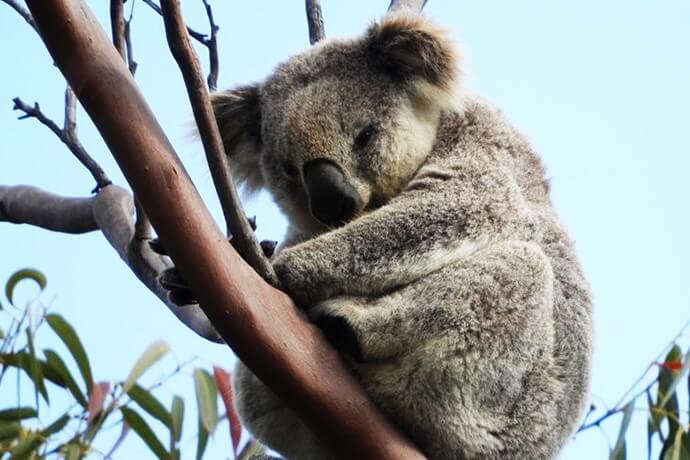
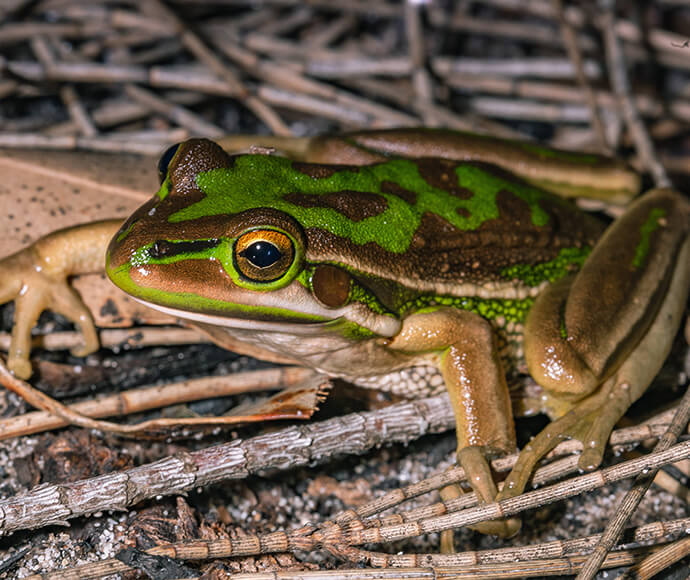
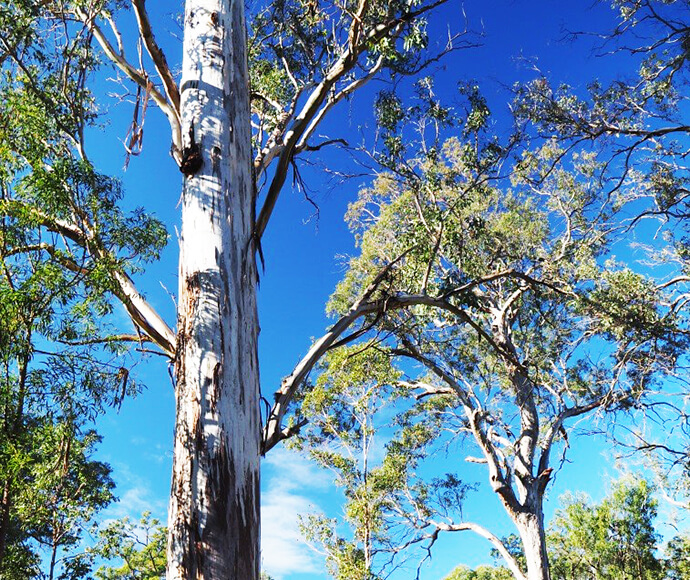
Connection to Country
Aboriginal people have a strong spiritual, cultural, physical, and social connection to and custodianship of Country, including its fauna and flora. The lower Hunter Valley includes the lands of the Wonnarua, Awabakal and Worimi people, and it is also a stronghold for the critically endangered regent honeyeater.
Mindaribba Local Aboriginal Land Council have supported and participated in captive-bred regent honeyeaters being released into the wild on their lands within the Tomalpin woodlands.
Watch the Saving the Regent Honeyeater video to find out more about the regent honeyeater and its connection to Wonnarua Country.
